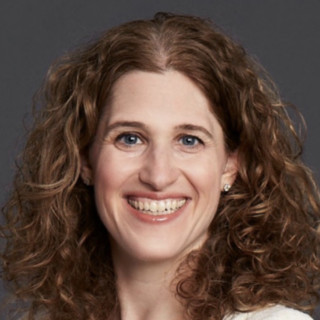As the AIBD meeting wrapped up this past weekend, it was an honor to serve as the co-chair for the fellows track along with Christina Y. Ha, MD, FACG from Cedars-Sinai. This program, along with three other simultaneous specialty tracks, capped off the four-day conference on a high note as enthusiasm and energy was palpable from the trainee audience despite the virtual format. The Fellows Track consisted of two, 90-minute sessions with a mix of didactic lectures and small group discussions. The small group discussions were in virtual breakout rooms designed to simulate the round table discussion that had been planned for the live meeting. Around 100 fellows registered for the program which was included in the general registration fee for the meeting.
The fantastic virtual platform was seamless in its content delivery, allowing Fellow Track participants to first watch a 10-minute pre-recorded didactic lecture from an expert faculty member and then be automatically directed to a breakout room with other fellow participants and one expert faculty to engage in a discussion about the topic presented for the following 20 minutes. We encouraged all participants to have their cameras on and their screens labeled with their names to encourage engagement and lively discussion. The fellows had three back-to-back sessions totaling 90 minutes. This was again repeated in the afternoon for a total of six lectures and six discussions.
The focus of the program was to teach trainees how to effectively communicate about IBD with their patients. The program objectives included: emphasizing key concepts for a successful provider-patient relationship while navigating through the challenges of IBD care, delivering education in effective ways to translate clinical IBD findings and processes to improve patient comprehension, and providing valuable time with key experts in the field of IBD for continued networking and mentorship.
This patient-centered program covered the following topics: how to discuss a diagnosis of IBD with a patient or caregiver, providing a framework for choosing the optimal IBD therapy, describing the goals of care for the IBD patient, communicating endoscopic and histologic findings with patients, how to explain imaging studies to your patients, and the role of surgery in IBD management. While many of these topics were covered in presentations or panel discussions earlier in the meeting, they were not presented from the patient perspective and geared toward a trainee audience. Fellows in training represent a unique part of the program audience for educational meetings and having a separate track dedicated to address their questions and guide their practice can provide a significant learning opportunity while having downstream positive effects on patient care. Clinical practices are not cemented in this sector of the audience and first-hand exposure to experts in the field is an invaluable opportunity. As we know from previous studies, gastroenterology fellows do not have equal access to IBD patients or expert providers during their training and these supplemental opportunities are so important to enhancing awareness surrounding the complexity of care required to manage IBD, elevating knowledge, and increasing interest in the field of IBD.
Immediately following the fellows track, there was a virtual reception for fellow attendees. This program offered an opportunity to welcome one another into our respective homes or offices given the virtual setting for informal conversation, networking, and continued learning. While in-person meetings are sorely missed, the opportunity to participate in a comprehensive IBD educational meeting at the end of this tumultuous year provided a chance to consolidate our knowledge, participate in enthusiastic debates and discussions, visit with colleagues on screen, and make new connections.
All materials from the course are available to registered participants on through December 2021 through the course website.
Image: MSSA / Shutterstock







